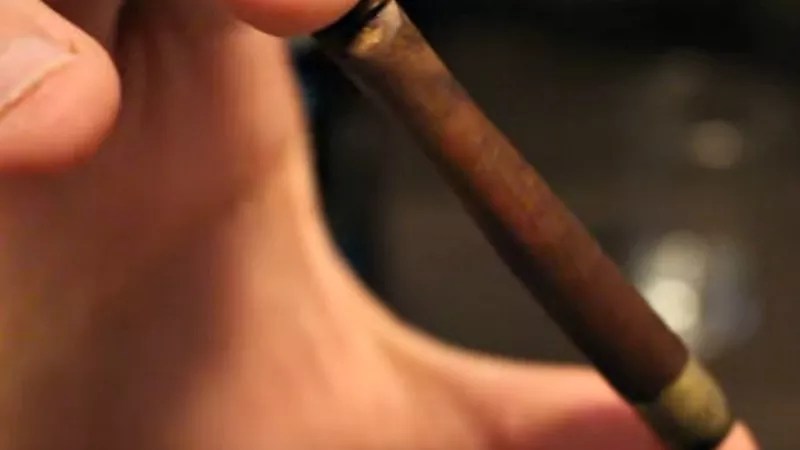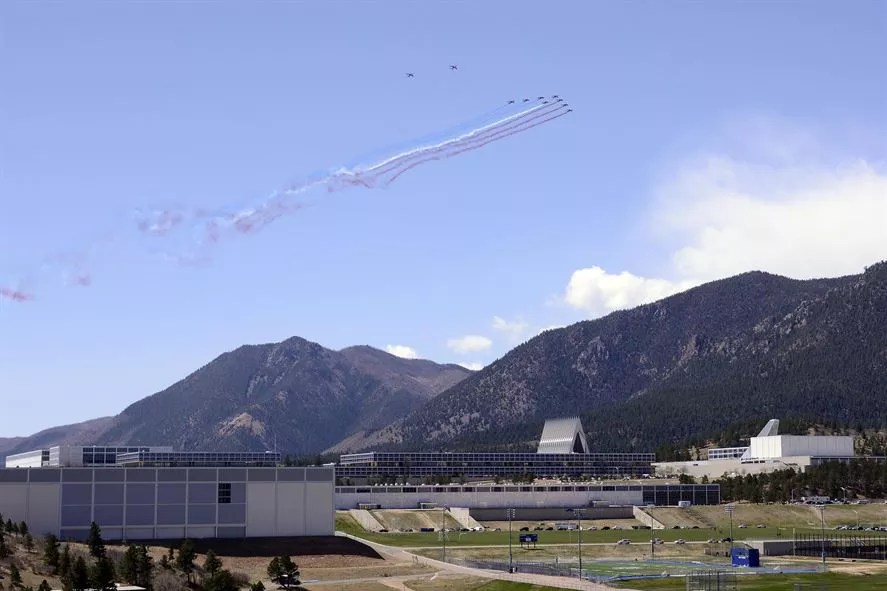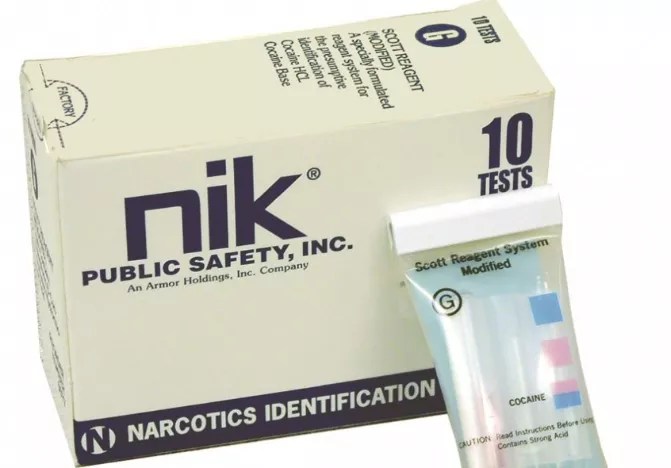

Audio By Carbonatix
Editor’s note: Charges against Mike McCarron for the incidents described below have been dropped. For more information, click to read, “Pot Field Tests Are ‘Bull$hit,’ Arrestee Says After False Positive for Meth.” Continue for our previous coverage.
Mike McCarron is facing a methamphetamine charge even though he’s never knowingly possessed or used the substance. Prosecutors in El Paso County are pressing the accusation because they say a small amount of marijuana found in his truck tested positive for meth, even though a McCarron follicle analysis shows no trace of it in his system.
Here’s how McCarron describes the bizarre incident, which took place on May 18 and resulted in him losing his job and spending more than a day in handcuffs or behind bars.
“I worked as a delivery driver for the Gulley Greenhouse in Fort Collins,” says McCarron, who lives in FoCo. “They deliver flowers and stuff to military bases, and I was delivering some flowers to Peterson Air Force Base in Colorado Springs.”
McCarron had a small amount of marijuana and a one-hitter zipped in the pocket of his jacket upon his arrival at the base, a little shy of 9 a.m. on the 18th, but he didn’t think it would be a problem. After all, he hadn’t been smoking (he was saving the weed for after work), and he’d had the same pipe and a similar amount of cannabis in his possession during a stop at the base the previous week and there’d been no problem.
This time, though, things were different. Following a tough drive (a late spring snowstorm battered the area that day), McCarron joined other drivers in what he describes as “a secure waiting room” while security inspected their vehicles. Then, after the other drivers were allowed to return to their rides, he says, “a female sentry told me I had to stay, and I was asked by Air Force security to enter the search area. They asked me to face the wall, and I was handcuffed by another sentry from behind.”
Why? That’s what McCarron wanted to know. “I asked, ‘What’s going on?'” he recalls. “They told me it wasn’t in their jurisdiction to answer any questions.”

Peterson Air Force Base.
Photo by Michael Kaplan via peterson.af.mil
Next, McCarron was searched a second time and given a Horizontal Gaze Nystagmus (HGN) test, a standard sobriety analysis that involves observing a subject’s eyes when he looks sideways at an angle of 45 degrees. McCarron, who’d worked fifteen hours the day before and admits that he was a bit “disheveled,” supposedly failed the test, which he chalks up to being confused and “distracted by people asking me how much marijuana I’d smoked.”
At that point, McCarron says, “security guards paraded me handcuffed in front of everybody in line waiting to get on the base and sat me in a chair at a window for over an hour” before the arrival of the Colorado Springs Police Department. A CSPD officer subsequently administered the same HGN test, and this time, McCarron passed, which explains why he evaded a charge of driving under the influence. But he wasn’t released. Instead, amid his requests to speak with a lawyer, he was questioned about whether or not he had a medical marijuana card (he doesn’t), and his truck was searched by the civilian cops. He also heard a Springs officer and a member of the military discussing what his marijuana was “laced with,” he recalls. “And I blurted out, ‘The marijuana isn’t laced with anything.'”
Nonetheless, he was placed under arrest, and he learned the reason when he got a glimpse of the computer screen inside the squad car transporting him to El Paso County jail: “It said the subject was being retained for methamphetamines. And I said, ‘I wouldn’t know what methamphetamines looked like or smelled like. I’ve never done anything like that in my life.’ And [the officer] said, ‘You’re learning a hard lesson. You need to know where your marijuana comes from if it didn’t come from a dispensary.'”
According to McCarron, he got the cannabis from a private grower he trusts, and he’d been using it for several weeks with no indication that it was anything other than marijuana. But law enforcement documents say his pot had been given a NIK test – the letters stand for “Narcotics Identification Kit” – by Peterson personnel and the Springs cops, and it scored positive for meth in both instances.
These results don’t constitute proof. Indeed, NIK tests, which are used in the field as the equivalent of portable breath tests for alcohol, aren’t admissible in court, according to Daniel Kay, a Colorado Springs-based attorney who’s representing McCarron. “They’re not overly reliable,” he says. “There are all kinds of reports about false positives. I don’t have a lot of faith in them.”

A NIK test.
This is especially true in the wake of McCarron’s negative tests for meth conducted by a private facility, Fastest Labs in Fort Collins.
At this writing, McCarron’s marijuana is scheduled to be examined by the Colorado Bureau of Investigation. Kay notes that the CBI sometimes takes a month or two before getting to samples, and McCarron’s July 25 court date may have to be pushed back should the answers be delayed.
If the CBI detects no meth in the marijuana, Kay is confident the case will be immediately dismissed. And should the substance be detected, he says, “we’ll argue that he didn’t have any intent to possess methamphetamine. His intent was that it was marijuana.”
The Colorado Springs Police report calculates the weight of the narcotics and its container at 13.3 grams; Kay says that amount includes the one-hitter, too. But McCarron estimates the actual amount of marijuana at around a single gram, “and it was all dried out.”
“There might not even be enough to test,” says Kay, who characterizes the series of events as “absolutely crazy. They had six law enforcement officers in an area with him handcuffed over this tiny bit of marijuana…. They took it much more seriously because it was on federal property. If it had been a stop within the city limits or something like that, you would never have had that kind of a show of force.”
Although McCarron fears that his arrest could represent a new trend of cops claiming that marijuana has additives in order to charge people with more serious crimes, Kay hasn’t heard of anything like that happening to date, “and there isn’t a buzz about it among defense attorneys.”
Even if the case is eventually dismissed, McCarron is already the worse for wear. “They had me in handcuffs for hours. I wasn’t taken to jail until the afternoon, and then I spent 28 hours in there before somebody could bail me out,” he says. “And it was all over a couple of scraps. It was such a small amount that you’d think they’d just dump it on the ground and that’d be it. But it wasn’t.”